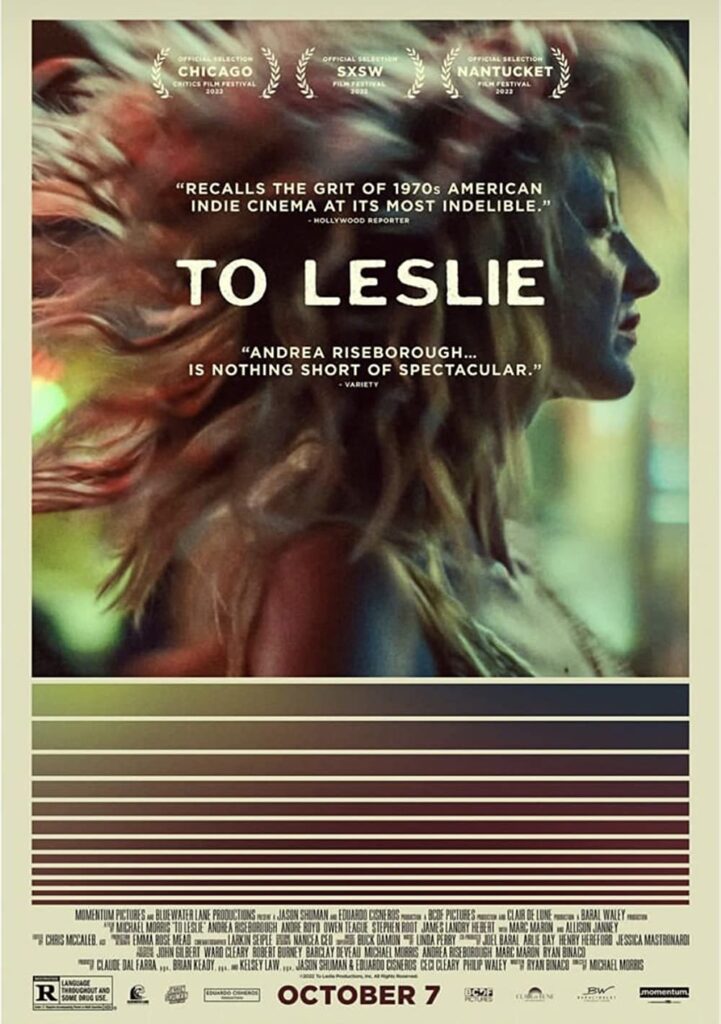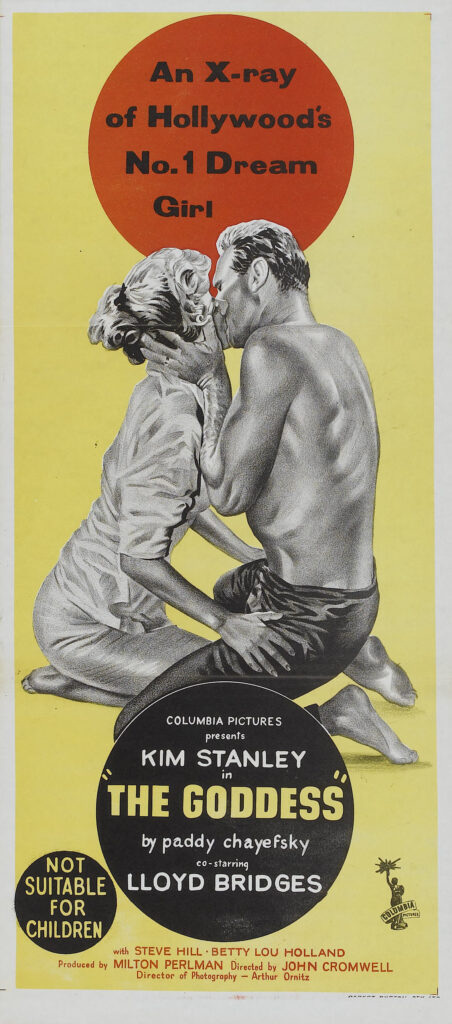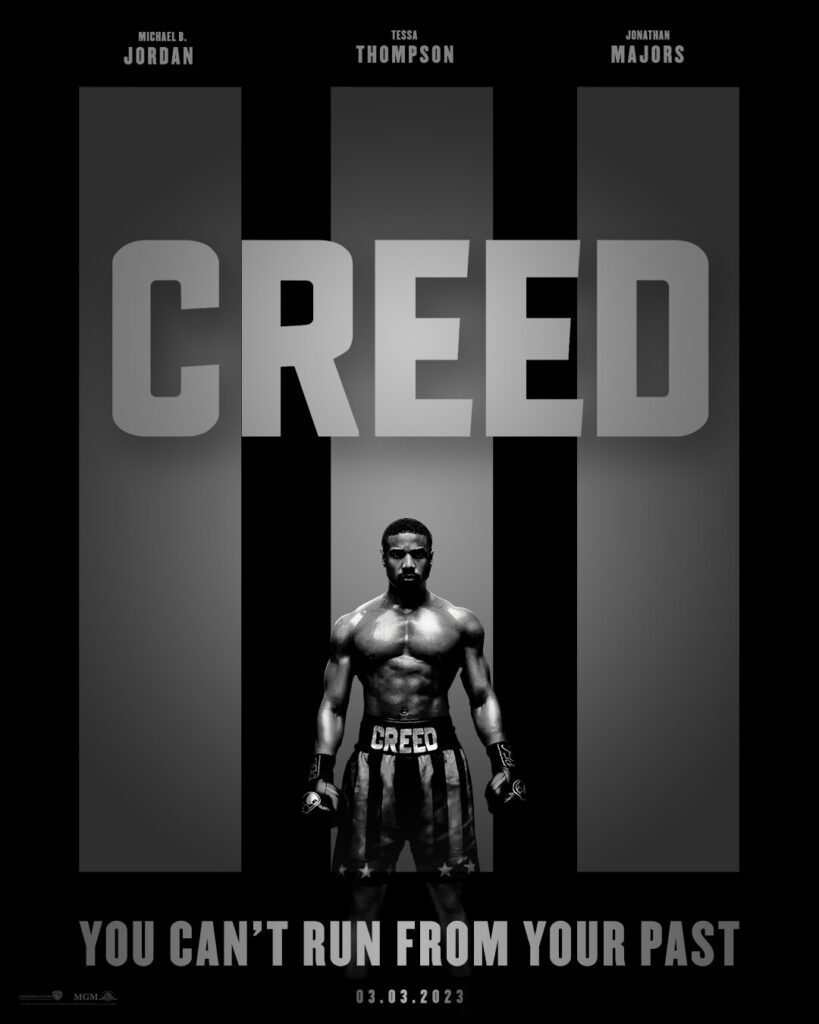I Wake Up Streaming | June 2023
Movies

In this edition of “I Wake Up Streaming,” novelist William Boyle rounds up his top streaming picks for the month of June. The column’s name is a play on the 1941 film I Wake Up Screaming, starring Betty Grable, Victor Mature, and Carole Landis. While the film’s title hits a pleasing note of terror and despair, changing that one letter speaks to the joy of discovering new films and rediscovering old favorites, as well as the panic that comes with being overwhelmed by options.
To Leslie (Netflix)

Prior to this year’s Academy Awards, a huge fuss was made about the grassroots campaign among notable actors and celebrities that got Andrea Riseborough a Best Actress nomination for her performance in To Leslie. The blowback was bullshit. First off, her performance deserved the nomination. Secondly, those who got behind Riseborough’s turn in this small indie were only doing what studios do all the time for bigger pictures. In any case, I’m glad all the attention brought more of an audience to the film, which might have otherwise slipped under the radar. Riseborough is one of the most fearless, shapeshifting actors of her generation (see also her memorable performances in Nancy, Please Baby Please, Mandy, and Possessor), and here she’s wonderful as Leslie, a woman from West Texas who won the lottery years ago and squandered all the dough on booze and partying. She left her young son, James, to live with Dutch (Stephen Root) and Nancy (Allison Janney), while she drifted into a world of rough living. Years later, she reconnects with James (Owen Teague), now grown, but she quickly betrays his trust. The last place she has left to go—against her better judgment—is back home to live with Dutch and Nancy, who have run out of patience with her. She quickly goes off the rails and is out on the street. She winds up getting a job at a small motel run by Sweeney (Marc Maron) and Royal (Andre Royo). Sweeney puts more trust in her than anyone has in a long time. A path to a new life reveals itself, one where she might clean up her act enough to build and maintain a relationship with James. Riseborough is terrific, channeling Gena Rowlands in A Woman Under the Influence and Nicolas Cage in Leaving Las Vegas, and there’s a lightness to her performance that helps the movie from being bogged down by the subject matter. But it’s Maron as Sweeney who provides To Leslie with its beating heart. In his relatively short acting career, this is his best performance (building off his first great turn, as Mel in Lynn Shelton’s excellent Sword of Trust). He brings a humanity to Sweeney that also alters the tone of the proceedings—the script arcs toward hope and redemption anyway, but Maron’s mere presence makes the second half even more moving.
The Goddess (Criterion Channel)
 I’ve been wanting to see this for a long time (it’s been largely unavailable), and it’s now streaming on the Criterion Channel as part of the Method Acting collection. What a staggering performance by Kim Stanley as the Marilyn Monroe–inspired Rita Shawn (whose birth name was Emily Ann Faulkner). If you’ve seen any versions of A Star Is Born (William A. Wellman’s 1937 original is my favorite), you’ll be somewhat familiar with the story, though writer Paddy Chayefsky and director John Cromwell do something much more elliptical. It’s a challenging approach that probably alienated many viewers upon release. This isn’t officially a biopic (Emily/Rita is not clearly meant as a stand-in for Norma Jean/Marilyn), and yet one of the things I most responded to is how the movie rejects biopic conventions. Stanley is often talked about as “the Female Brando.” She started on the stage and attended the Actors Studio. Her filmography is brief and brilliant, in the same vein as John Cazale’s. Sure, it’s tough to buy her as a teenager in her first scenes (she was in her early thirties when the film was made), but she’s the real draw, giving a devastating and heartbreaking performance anchored by the poetry of Chayefsky’s script. Steven Hill is also wonderful as Emily/Rita’s first husband, John Tower, who takes her away from her miserable existence with her Bible-thumping mother in a small town where she’s been branded easy for sleeping around. Their meet-cute (if we can call it that) is my favorite part of the picture: Tower, a soldier, is passed out drunk in the street, and Emily (she hasn’t transformed into Rita yet) recognizes him as the son of a famous actor and brings him back to his hotel room, tending to him. When he wakes up, he launches into a monologue on the shittiness of life. He’s different from the boys Emily has known and only one degree of separation from Hollywood. She sees stars. My impression is that people consider this one of Chayefsky’s worst scripts, but I found it to be so damn smart and complicated, subverting and satirizing the star-is-born formula in some really unexpected ways. In Cahiers du Cinéma, André Bazin wrote that Chayefsky’s great influences here were Sartre and Chekhov, and I can really feel that. It’s interesting to compare it to Andrew Dominik’s Blonde (featuring a knockout central performance from Ana de Armas that owes a debt to Stanley), which tries to get at some of the same stuff in much uglier ways. The Goddess is also bleak and unforgiving in its portrait of celebrity and fantasy and the American Dream, but it’s more restrained and oblique.
I’ve been wanting to see this for a long time (it’s been largely unavailable), and it’s now streaming on the Criterion Channel as part of the Method Acting collection. What a staggering performance by Kim Stanley as the Marilyn Monroe–inspired Rita Shawn (whose birth name was Emily Ann Faulkner). If you’ve seen any versions of A Star Is Born (William A. Wellman’s 1937 original is my favorite), you’ll be somewhat familiar with the story, though writer Paddy Chayefsky and director John Cromwell do something much more elliptical. It’s a challenging approach that probably alienated many viewers upon release. This isn’t officially a biopic (Emily/Rita is not clearly meant as a stand-in for Norma Jean/Marilyn), and yet one of the things I most responded to is how the movie rejects biopic conventions. Stanley is often talked about as “the Female Brando.” She started on the stage and attended the Actors Studio. Her filmography is brief and brilliant, in the same vein as John Cazale’s. Sure, it’s tough to buy her as a teenager in her first scenes (she was in her early thirties when the film was made), but she’s the real draw, giving a devastating and heartbreaking performance anchored by the poetry of Chayefsky’s script. Steven Hill is also wonderful as Emily/Rita’s first husband, John Tower, who takes her away from her miserable existence with her Bible-thumping mother in a small town where she’s been branded easy for sleeping around. Their meet-cute (if we can call it that) is my favorite part of the picture: Tower, a soldier, is passed out drunk in the street, and Emily (she hasn’t transformed into Rita yet) recognizes him as the son of a famous actor and brings him back to his hotel room, tending to him. When he wakes up, he launches into a monologue on the shittiness of life. He’s different from the boys Emily has known and only one degree of separation from Hollywood. She sees stars. My impression is that people consider this one of Chayefsky’s worst scripts, but I found it to be so damn smart and complicated, subverting and satirizing the star-is-born formula in some really unexpected ways. In Cahiers du Cinéma, André Bazin wrote that Chayefsky’s great influences here were Sartre and Chekhov, and I can really feel that. It’s interesting to compare it to Andrew Dominik’s Blonde (featuring a knockout central performance from Ana de Armas that owes a debt to Stanley), which tries to get at some of the same stuff in much uglier ways. The Goddess is also bleak and unforgiving in its portrait of celebrity and fantasy and the American Dream, but it’s more restrained and oblique.
Creed III (Prime Video)
 I’m a huge fan of the Rocky and Creed franchise—they’re the films I go back to and rewatch the most. I thought about turning this whole column into my ranking of the nine movies, but I love them all (yes, even Rocky V, despite Tommy Morrison’s godawful performance) and thought it would be a thankless task. Suffice it to say, Ryan Coogler’s Creed would be near the top of any list I’d make. (The original Rocky would be at number one, of course, and then it’d be neck-and-neck between Rocky Balboa, Creed, and Rocky II). I enjoyed Stephen Caple Jr.’s Creed II more on my second viewing of it than I did initially, and I had high hopes for Michael B. Jordan’s directorial debut, Creed III. It didn’t disappoint. Jordan, of course, is Adonis “Donnie” Creed, son of Apollo and a woman he had an affair with, taken in by Apollo’s wife, Mary Anne, to live in the lap of luxury in Bel Air after growing up in group homes. During a stint at one of those group homes, he befriended Damian “Dame” Anderson from Crenshaw, a few years older than him. They became as close as brothers. After being adopted by Mary Anne, Donnie continues to sneak out to see Damian, a promising boxer. One night, after winning a big fight, Dame drives Donnie home. They stop at a bodega to get something to eat. Donnie goes in first. He runs into Leon, the dad from the group home where he and Dame originally met, a bad man who beat them mercilessly. Donnie flips out and attacks Leon. Leon’s boys jump Donnie, and Dame comes to his aid, pulling a gun. The cops show, and Donnie bolts. Dame gets arrested. With a couple of priors on his record, he goes to jail. Years later, Donnie retires as the champ of the world and settles into a mostly peaceful life with his wife Bianca (Tessa Thompson), a former singer/performer who has become a revered producer, and their daughter, Amara (Mila Davis-Kent). Meanwhile, grown-up Dame (Jonathan Majors) is finally released from prison—a big hunk of his life lost, gone forever. From behind bars, he kept track of Donnie, seeing the life he might’ve had if he hadn’t gone to jail. Dame comes to see Donnie at the gym where he now oversees the careers of other fighters. Dame says he wrote Donnie while he was locked up, but Donnie says he never got any of the letters. Guilt eats away at him—it was his fault Dame went to jail, and he never even had the guts to check in on him. He owes Dame. This all sets up the conflict at the heart of Creed III. Dame is a sympathetic villain—we can feel for him because of his tough upbringing and bad luck. He’s had to learn how to survive. He sees a way in, using and manipulating Donnie to try to get a break. The movie plays with elements of Rocky and Rocky III, and it improves on what was so promising about Rocky V’s premise. It’s disconcerting to watch Majors given the news in recent months of his violent, abusive behavior toward women—an eeriness hangs over the movie reminiscent of watching Tom Neal in Edgar G. Ulmer’s Detour. It feels wrong to praise Majors’s performance, but it’s impossible to ignore the fact that he steals every scene he’s in. As director, Jordan mostly sticks to the game plan, but he also takes some big swings stylistically. The fight scenes are well choreographed. The last third of the movie falters a little. Bianca and Amara fade into the background, after being major presences in the first two-thirds. The death of Donnie’s mother, Mary Anne (Phylicia Rashad), also feels rushed (even the death of Mickey in Rocky III feels more fleshed out). The emotion that makes so many of the Rocky and Creed films tick is somehow missing—it never quite feels as triumphant or as heartrending as it should. It would’ve been nice to see Sylvester Stallone’s Rocky Balboa show up, if only for a scene or two, or at least to have his absence accounted for. Still, Creed III is a very worthy entry in the franchise. Nine films in, almost fifty years after the original movie, the whole thing’s still floating, and there are several compelling paths forward.
I’m a huge fan of the Rocky and Creed franchise—they’re the films I go back to and rewatch the most. I thought about turning this whole column into my ranking of the nine movies, but I love them all (yes, even Rocky V, despite Tommy Morrison’s godawful performance) and thought it would be a thankless task. Suffice it to say, Ryan Coogler’s Creed would be near the top of any list I’d make. (The original Rocky would be at number one, of course, and then it’d be neck-and-neck between Rocky Balboa, Creed, and Rocky II). I enjoyed Stephen Caple Jr.’s Creed II more on my second viewing of it than I did initially, and I had high hopes for Michael B. Jordan’s directorial debut, Creed III. It didn’t disappoint. Jordan, of course, is Adonis “Donnie” Creed, son of Apollo and a woman he had an affair with, taken in by Apollo’s wife, Mary Anne, to live in the lap of luxury in Bel Air after growing up in group homes. During a stint at one of those group homes, he befriended Damian “Dame” Anderson from Crenshaw, a few years older than him. They became as close as brothers. After being adopted by Mary Anne, Donnie continues to sneak out to see Damian, a promising boxer. One night, after winning a big fight, Dame drives Donnie home. They stop at a bodega to get something to eat. Donnie goes in first. He runs into Leon, the dad from the group home where he and Dame originally met, a bad man who beat them mercilessly. Donnie flips out and attacks Leon. Leon’s boys jump Donnie, and Dame comes to his aid, pulling a gun. The cops show, and Donnie bolts. Dame gets arrested. With a couple of priors on his record, he goes to jail. Years later, Donnie retires as the champ of the world and settles into a mostly peaceful life with his wife Bianca (Tessa Thompson), a former singer/performer who has become a revered producer, and their daughter, Amara (Mila Davis-Kent). Meanwhile, grown-up Dame (Jonathan Majors) is finally released from prison—a big hunk of his life lost, gone forever. From behind bars, he kept track of Donnie, seeing the life he might’ve had if he hadn’t gone to jail. Dame comes to see Donnie at the gym where he now oversees the careers of other fighters. Dame says he wrote Donnie while he was locked up, but Donnie says he never got any of the letters. Guilt eats away at him—it was his fault Dame went to jail, and he never even had the guts to check in on him. He owes Dame. This all sets up the conflict at the heart of Creed III. Dame is a sympathetic villain—we can feel for him because of his tough upbringing and bad luck. He’s had to learn how to survive. He sees a way in, using and manipulating Donnie to try to get a break. The movie plays with elements of Rocky and Rocky III, and it improves on what was so promising about Rocky V’s premise. It’s disconcerting to watch Majors given the news in recent months of his violent, abusive behavior toward women—an eeriness hangs over the movie reminiscent of watching Tom Neal in Edgar G. Ulmer’s Detour. It feels wrong to praise Majors’s performance, but it’s impossible to ignore the fact that he steals every scene he’s in. As director, Jordan mostly sticks to the game plan, but he also takes some big swings stylistically. The fight scenes are well choreographed. The last third of the movie falters a little. Bianca and Amara fade into the background, after being major presences in the first two-thirds. The death of Donnie’s mother, Mary Anne (Phylicia Rashad), also feels rushed (even the death of Mickey in Rocky III feels more fleshed out). The emotion that makes so many of the Rocky and Creed films tick is somehow missing—it never quite feels as triumphant or as heartrending as it should. It would’ve been nice to see Sylvester Stallone’s Rocky Balboa show up, if only for a scene or two, or at least to have his absence accounted for. Still, Creed III is a very worthy entry in the franchise. Nine films in, almost fifty years after the original movie, the whole thing’s still floating, and there are several compelling paths forward.
William Boyle is the author of the novels Gravesend, The Lonely Witness, A Friend Is a Gift You Give Yourself, City of Margins, and Shoot the Moonlight Out. His novella Everything Is Broken was published in Southwest Review Volume 104, numbers 1–4. His website is williammichaelboyle.com.
Illustration: Jess Rotter
More Movies


